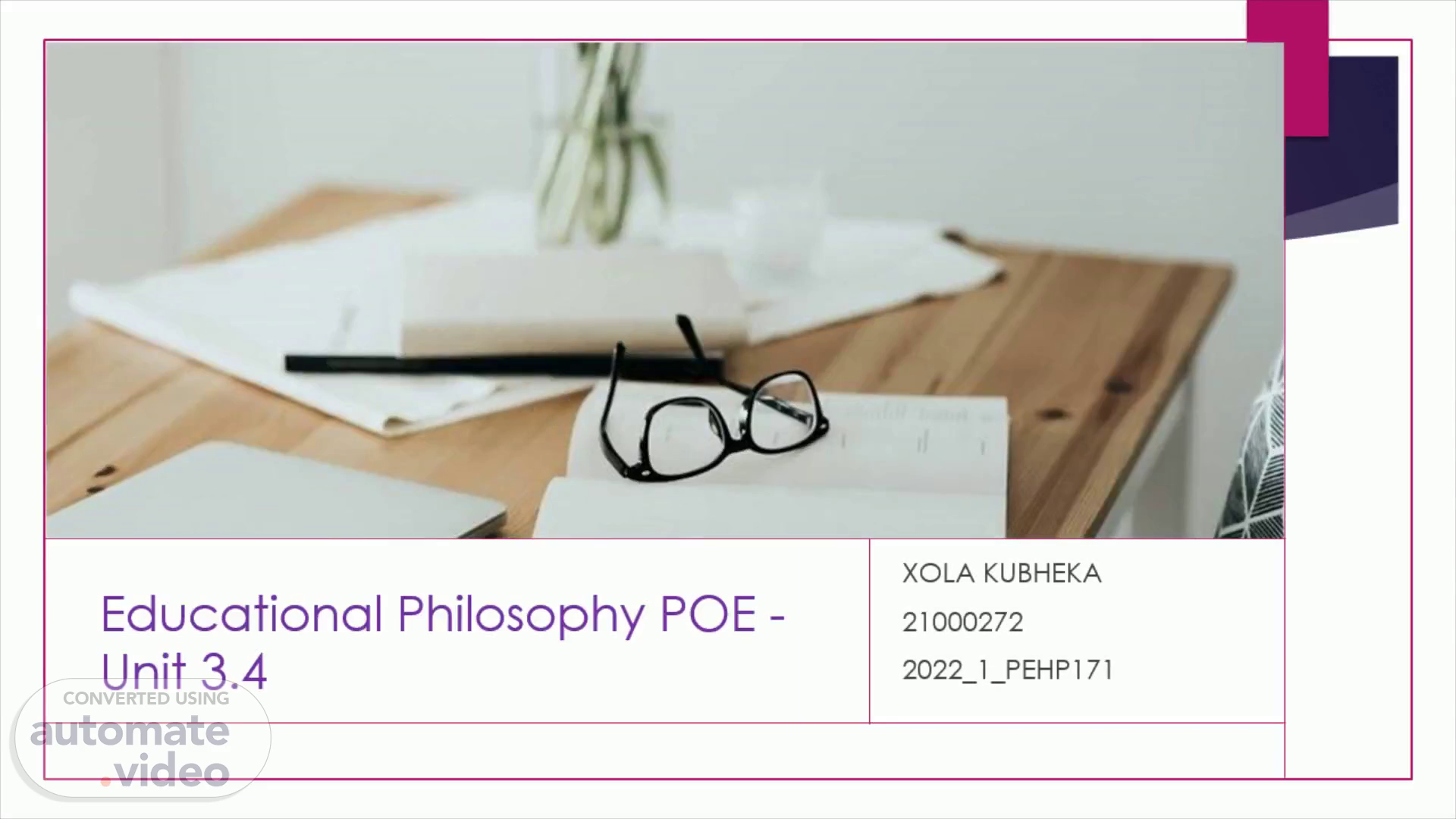
Educational Philosophy POE - Unit 3.4
Scene 1 (0s)
Educational Philosophy POE - Unit 3.4. XOLA KUBHEKA 21000272 2022_1_PEHP171.
Scene 2 (9s)
Introduction. What is philosophy and how does it impact education? What are ethics? What is CAPS?.
Scene 3 (18s)
My personal Philosophy of Education: Existentialism.
Scene 4 (39s)
How my personal educational philosophy mirrors my personal values….
Scene 5 (1m 5s)
My Cultural, Educational & Spiritual Background: My personal Philosophy of Education:.
Scene 6 (1m 33s)
Philosophy of Education:. • Perennialism • Essentialism • Pragmatism • Social reconstructionism.
Scene 7 (1m 41s)
T heoretical underpinnings of a Teacher centred and a Learner-centred Philosophy of Education.
Scene 8 (2m 4s)
Cont …. Teacher Centred Philosophy of Education Perennialism Focuses on eternal ideas and universal truths. Teach Great literature, art, philosophy, religion. Information is received, processed, stored and searched from the mind..
Scene 9 (2m 26s)
CAPS-directed lesson : Teacher roles in the learner centred classroom.
Scene 10 (2m 58s)
Ethics in Education. We are responsible for all of our decisions and acts because, unlike other animals, we have the ability to deliberate about our choices. Furthermore, ethics might be defined as the study of what is wrong and what is right. Education aids in the development of physical and mental abilities therefore how do we know what is right or wrong if there are no ethical standards in education? 2 major Philosophers that influenced Education are Aristotle and Plato . Aristotle being the f ather of realism, believed that a fulfilled person was one who had been educated. He also argued that academic, practical, and technological education are all important. Plato , the creator of Idalism, stated that the goal of education was to improve people's talents so that they might better serve society..
Scene 11 (3m 17s)
Ethics for Teachers. How do teachers come to be aware of their professional obligations?.
Scene 12 (3m 37s)
Conclusion. 12.
Scene 13 (3m 43s)
References. Session 1 (PEHP171 Unit 3.1, What is philosophy? Session 2 (PEHP171) Unit 3.1, Philosophy of education. EBSCO Publishing Inc.(2008) Essentialism & Perennialism, EBSCO Research Starters SquareSpace. 2016. What is Philosophy? Crash Course Philosophy #1 [Online] Available at: https://youtu.be/1A_CAkYt3GY Nur Yeliz Gülcan (2015). Discussing the importance of teaching ethics in education. Available online at www.sciencedirect.com Jacques S. Benning, (2013) Resolving Ethical Issues at School Available at: https://www.researchgate.net.
Scene 14 (4m 9s)
Thank you. Xola Kubheka • Unit 3.4 • Educational Philosophy POE.